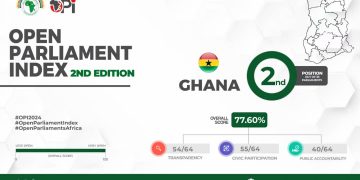Ghana Emerges Africa’s Frontrunner in Digital Finance Consumer Protection
Ghana has emerged as a continental leader in consumer protection for digital finance, supported by a regulatory framework that balances innovation with safeguards, former First Deputy Governor of the Bank of Ghana (BoG), Dr Maxwell Opoku-Afari, has said.
In an article published in the Digital Banker Africa Magazine, Dr Opoku-Afari highlighted Ghana’s top ranking on the GSMA Mobile Money Regulatory Index as evidence of the country’s progress. He pointed to measures including consumer recourse guidelines, directives on unclaimed balances and dormant accounts, and a data protection regime as concrete protections that have strengthened trust in digital finance.
He also drew attention to broader regional developments, noting that Nigeria’s Central Bank issued operational guidelines on Open Banking in 2023, with the BoG following in 2024 with a Draft Open Banking Directive to allow regulated financial institutions to share consented customer data. According to him, these reforms form the backbone of a safer and more competitive digital financial market.
“Trust remains a cornerstone,” Dr Opoku-Afari said, stressing the need for policy frameworks that simultaneously advance digital banking and protect consumers. Beyond rules, he emphasised that financial literacy and consumer education were critical to equip users with the tools to recognise fraud, understand their rights, and make informed choices.
Looking ahead, Dr Opoku-Afari argued that emerging instruments such as central bank digital currencies (CBDCs), AI-driven financial services, and cross-border banking solutions hold strong potential to raise consumer welfare and efficiency across Africa’s financial systems. CBDCs, he noted, could boost financial stability, reduce cross-border transaction cost,s and enhance monetary policy transmission, while AI could drive personalisation and automation in service delivery. Cross-border banking solutions, meanwhile, would lower frictions that increase costs for consumers and small businesses.
However, he cautioned that technology alone would not be sufficient to scale such innovations. He called for regulatory sandboxes, innovation funds, risk-based licensing, and private sector investment to mobilise capital and talent. Continuous consumer education, he added, must remain central to sustaining trust and adoption of digital financial services.








